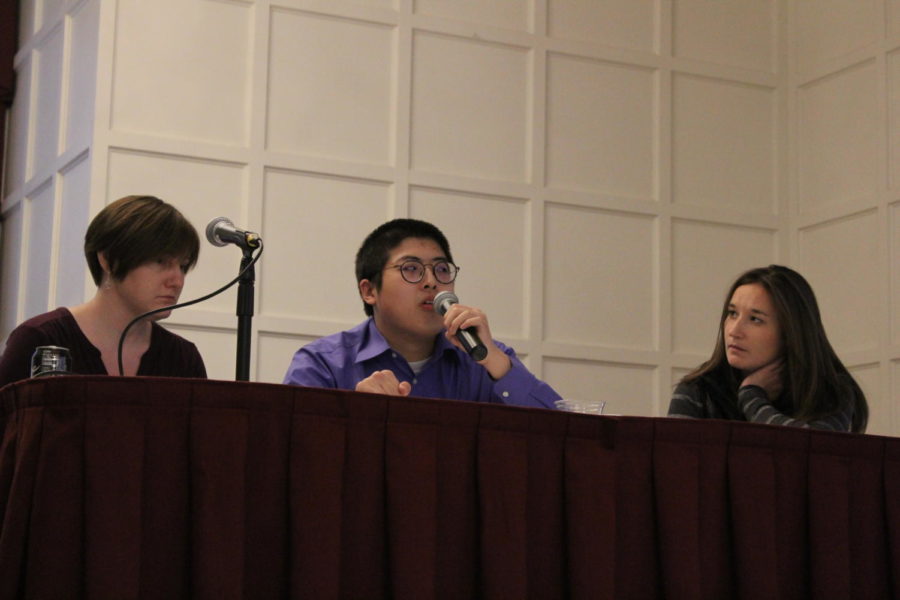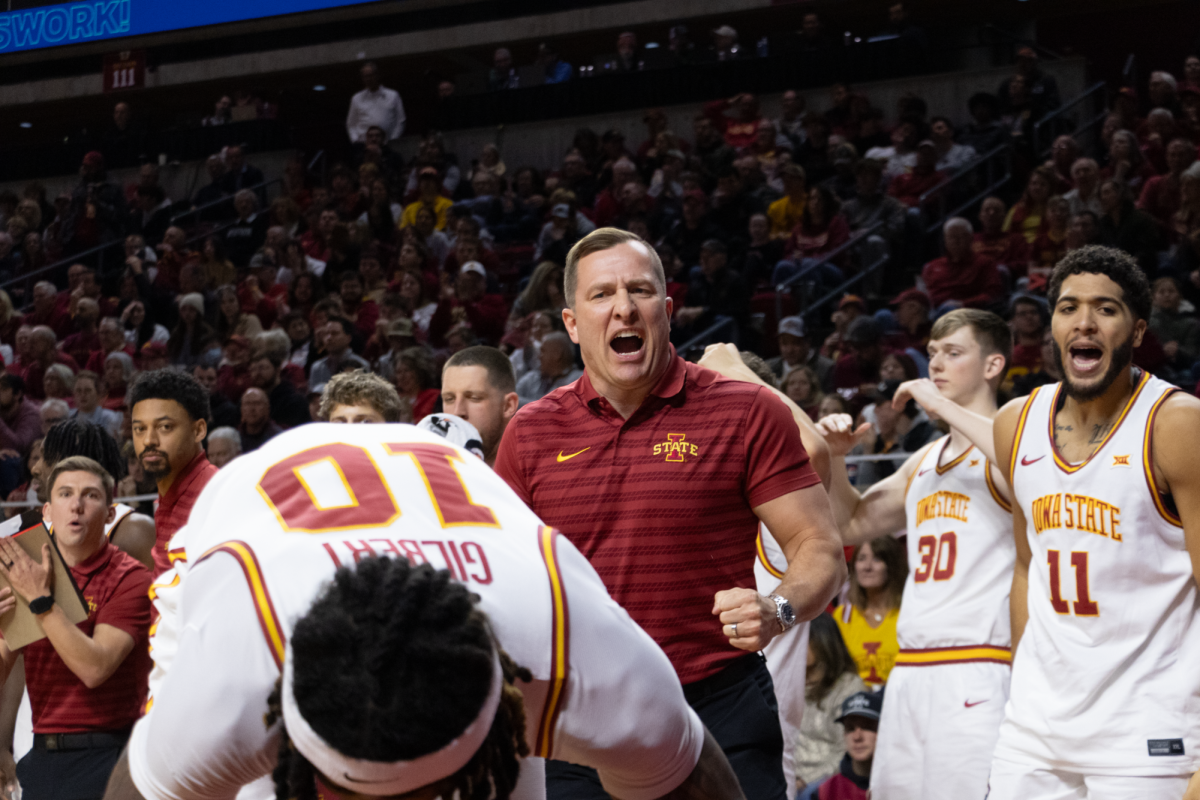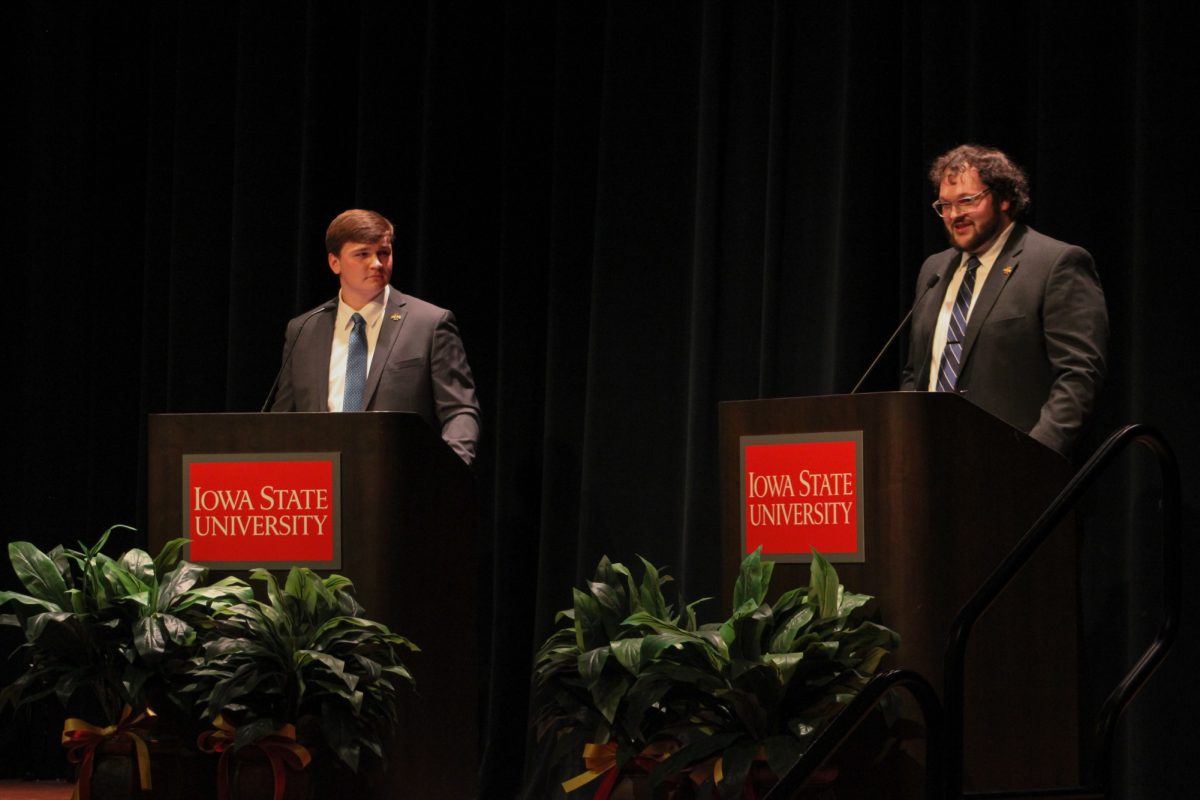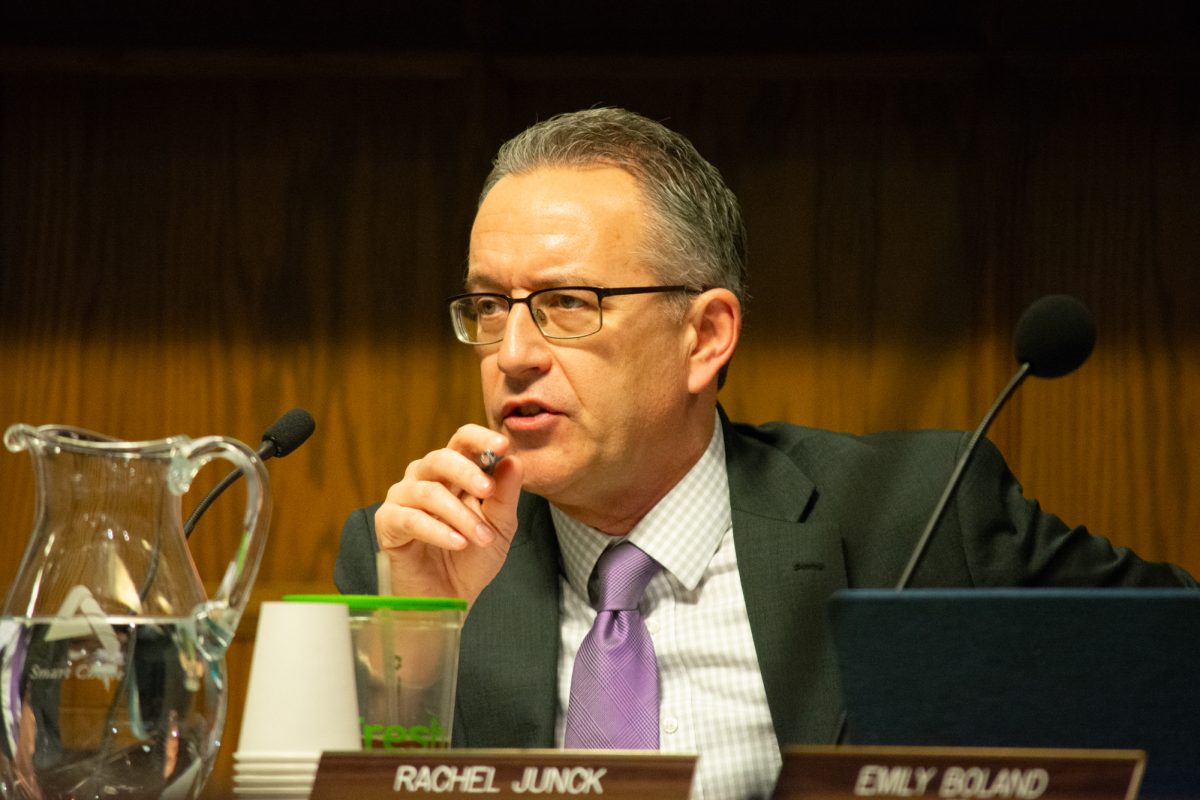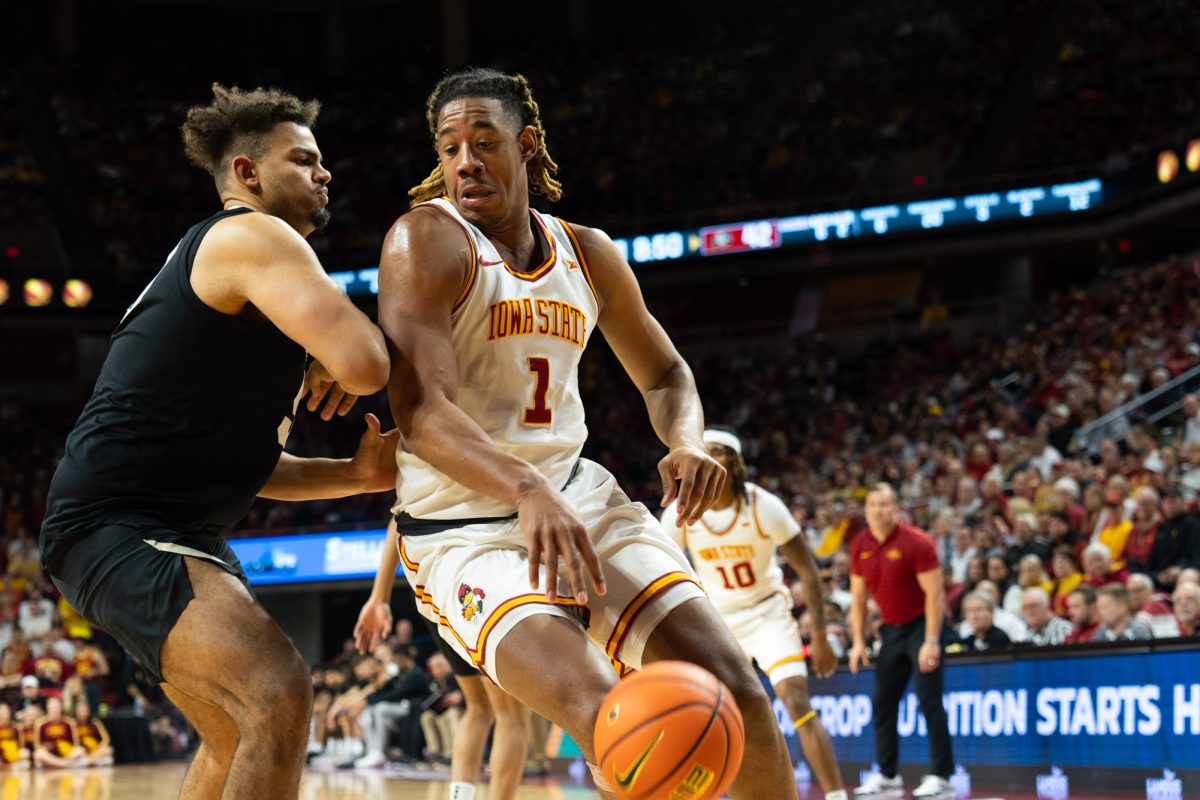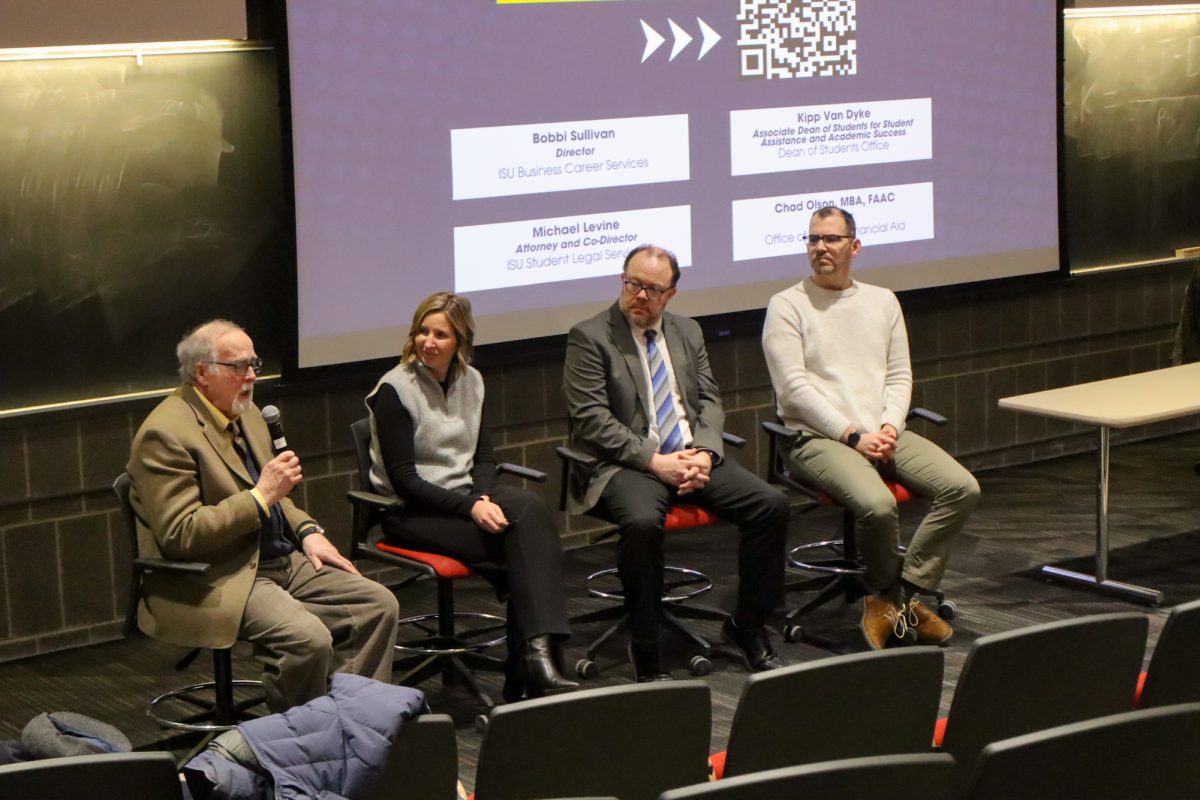Panel discusses climate surrounding accessibility for students with disabilities at Iowa State
“That’s not what being non-disabled means, it’s what being human means, being able to rely on each other for things.” says Vincent Lin answering a question on transportation with a disability at the “Your Instructor Said What?” Student panel for Disability Awareness Week at the Memorial Union on Nov. 1.
November 1, 2018
A panel of students and instructors gathered in the Memorial Union on Thursday to discuss the climate surrounding accessibility for students with disabilities at Iowa State.
The four students disclosed a range of disabilities they possessed, such as cerebral palsy, depression and dyslexia, among others.
The panelists detailed the obstacles they have faced in acquiring accommodations for their disabilities, such as professors who are unwilling to assist, pressure from both peers and instructors to perform on the same level as their able-bodied counterparts as well as lacking the “appearance” of a disabled person.
“I remember the first week of my freshman year was horrific. I hurt and could not balance, could not use my legs to move anywhere. People carried me to class because I could not put pressure on my left leg. I basically ping-ponged my way between the buildings, holding on to the sides of buildings, holding on to railings, holding on to parking meters. People let me lean on them and we walked three-man wide to the doors of classes, and they helped me get seated,” said Vincent Lin, a senior with cerebral palsy.
“However, within that same month, I read an opinion piece published in the Daily, in which a senior said, in a sense, ‘Freshmen get out of the way, […] we have places to go, […] don’t waste time by walking three-wide, [taking up] the entire sidewalk,’” Lin said.
One shared obstacle between the student panelists was frustration toward professors who have failed to make accommodations for students with disabilities, as well as the anxiety that may arise when one is forced to fight for their accommodations.
“Spring semester [of my first year], I was struggling with a professor to [receive] my accommodations. I personally hate conflict, and this is something I will always struggle with. If I’m trying to fight for my accommodations, it’s really hard for me to stand up for myself,” said Amber Markley, a senior with multiple diagnosed disabilities.
Some of the most common accommodations for students with disabilities include low-distraction rooms for exams, time and a half for exams, and use of the speech-to-text software Kurzweil.
The panel is one of many events that comprise disability-awareness week. Other events throughout the week include an Alliance for Disability Awareness ice cream social, an event allowing people to try out various mobility assistance devices and an interactive art exhibit.


